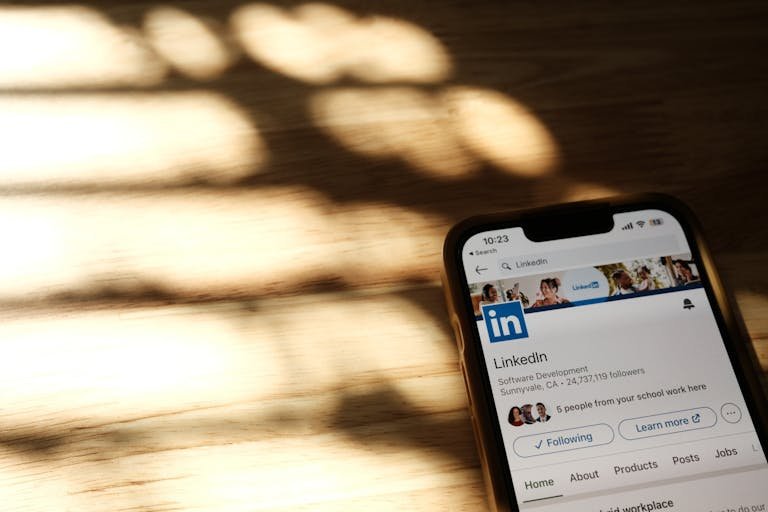Finding employment is not easy. Going through the feelings of elation of interviews and then coming down crashing into rejection emails makes job seekers demotivated and clueless. However, what if, we were to let you in on a secret that the act of replying to a rejection email was enough to potential the change? This blog will explain all that and will also illustrate how a good response can turn a defeat into an opportunity of a lifetime.
The Psychology of Rejection
Common Emotional Reactions to Job Rejection
Job rejections are never easy at all and as such you’re likely to feel all sorts of emotions. The first rejection is always painful but be sure, it always has a lesson for you. I can still remember that my first interview was also followed by the devastating blow of the rejection email. That experience left me questioning my worth and abilities in the field I was so passionate about.
The Importance of Maintaining a Positive Mindset
Despite the initial sting, maintaining a positive mindset is crucial. When I recall my first interview, after months of applying to various entry-level positions, it only resulted in rejection after rejection. The “ghosting” from companies that never replied, coupled with the formal rejection emails, led to a period of self-doubt and frustration about my future. Over time, I learned that each rejection was a step closer to the right opportunity.
Strategies for Coping with Rejection
Dealing with rejection presents challenges, yet employing effective strategies can ease the process. Start by acknowledging and accepting your emotions, as they are a natural response to being turned down. Reframing your viewpoint can also be beneficial; consider rejection as a chance for growth and self-improvement rather than a personal setback. Establishing a support system of friends and family can offer emotional solace and motivation. Moreover, maintaining a positive mindset and practicing self-compassion can enhance resilience.
Lastly, focusing on actionable steps for future enhancement, like seeking feedback and setting new objectives, can transform rejection into a constructive opportunity.
Why You Should Respond to a Rejection Email
Building a Professional Reputation
Responding to a rejection email presents a pivotal chance to nurture and uphold your professional image. It exemplifies your professionalism, resilience, and courtesy. By expressing gratitude to the sender for their time and consideration, you leave a favorable impression that may pave the way for future prospects. This considerate and tactful reply can set you apart, demonstrating your adeptness in handling setbacks with poise and maturity. Consistent professionalism over time aids in crafting a reputation that can unlock unforeseen opportunities and foster valuable professional connections.
Gathering Valuable Feedback
Responding to a rejection email presents an excellent chance to acquire valuable feedback. Employers or clients often do not provide detailed reasons for their decision unless asked. By politely requesting feedback, you can gain insights into areas needing improvement. This feedback is crucial for personal and professional development, enabling you to address weaknesses and enhance your skills and approach. Moreover, it demonstrates your dedication to continuous improvement and willingness to learn from every experience, qualities highly prized in professional environments.
Keeping Your Name Top-of-Mind
Crafting a reply to a rejection email can help you stay on the radar of potential employers or clients. In competitive industries, being memorable can offer a significant edge. A considerate and gracious response can distinguish you from candidates who overlook this step. By nurturing a positive rapport, you increase the likelihood of being remembered by the hiring manager or client for upcoming opportunities. This proactive strategy may open doors to new prospects when another role or project arises, potentially transforming a setback into a future triumph.
How to Respond to a Rejection Email
The General Approach
Express Gratitude for the Opportunity
Start by thanking the hiring manager for the opportunity to interview. This sets a positive tone and shows your appreciation.
Acknowledge the Rejection Gracefully
Acknowledging the rejection gracefully demonstrates maturity and professionalism. Reiterate your interest in the company and the role.
Show Continued Interest in the Company
Expressing continued interest can keep you in consideration for future roles. Mention any aspects of the company or team that particularly impressed you.
Request Feedback
Politely asking for feedback can provide valuable insights for future applications. Make it clear that you’re looking to improve and appreciate any input.
Maintain a Positive and Professional Tone
Throughout your response, maintain a positive and professional tone. This ensures your message is well-received and leaves a lasting impression.
Tailoring Your Response
Different Types of Rejection Emails
Rejection emails can vary in detail. Some are generic, while others provide specific reasons for the decision. Tailor your response accordingly.
How to Adapt Your Response Accordingly
For generic rejections, focus on gratitude and continued interest. For personalized rejections, address any feedback provided and express your willingness to improve.
Email Templates
Customizable Email Templates for Different Scenarios
Generic Rejection Response Template
“`
Dear [Hiring Manager’s Name],
Thank you for informing me about your decision regarding the [Job Title] position. While I’m disappointed, I’m grateful for the opportunity to interview and learn more about [Company Name].
I remain very interested in [Company Name] and would appreciate it if you could keep me in mind for future opportunities.
Thank you again for your consideration.
Best regards,
[Your Name]
“`
Personalized Rejection Response Template
“`
Dear [Hiring Manager’s Name],
Thank you for informing me about your decision regarding the [Job Title] position. I appreciate the feedback you provided about [specific feedback]. I will work on this area to enhance my skills.
I remain very interested in [Company Name] and would love to stay connected for any future opportunities that might arise.
Thank you again for the helpful feedback and consideration.
Sincerely,
[Your Name]
“`
Turning Rejection into a Positive
Learning from Rejection
Identifying Areas for Improvement
Each rejection is an opportunity to learn. Identify areas for growth and work on them. This continuous improvement will make you a stronger candidate.
Building Resilience
Facing rejection builds resilience. Over time, you’ll develop a thicker skin and a more positive outlook, which are invaluable traits in any career.
Expanding Your Network
Leveraging LinkedIn and Other Platforms
Use platforms like LinkedIn to connect with industry professionals. Building a strong network can lead to unexpected opportunities and valuable insights.
Attending Industry Events
Attend industry events and conferences. These gatherings are great places to meet potential employers and learn about industry trends.
Maintaining a Positive Online Presence
Managing Your Social Media Image
Ensure your social media profiles reflect a positive and professional image. Potential employers often check these platforms, so make sure they see your best side.
Follow-up Strategies
When and How to Follow Up
Follow up a few weeks after sending your rejection response. This shows persistence and continued interest without being intrusive.
Building Relationships with Recruiters and Hiring Managers
Cultivate relationships with recruiters and hiring managers. Stay in touch, share industry news, and express your ongoing interest in the company.
Closing Remarks
Receiving a rejection email is not the end of the road. By responding professionally, you can turn a setback into a stepping stone. Remember, the goal is to leave a positive impression, gather valuable feedback, and keep your name on top of mind for future opportunities.





